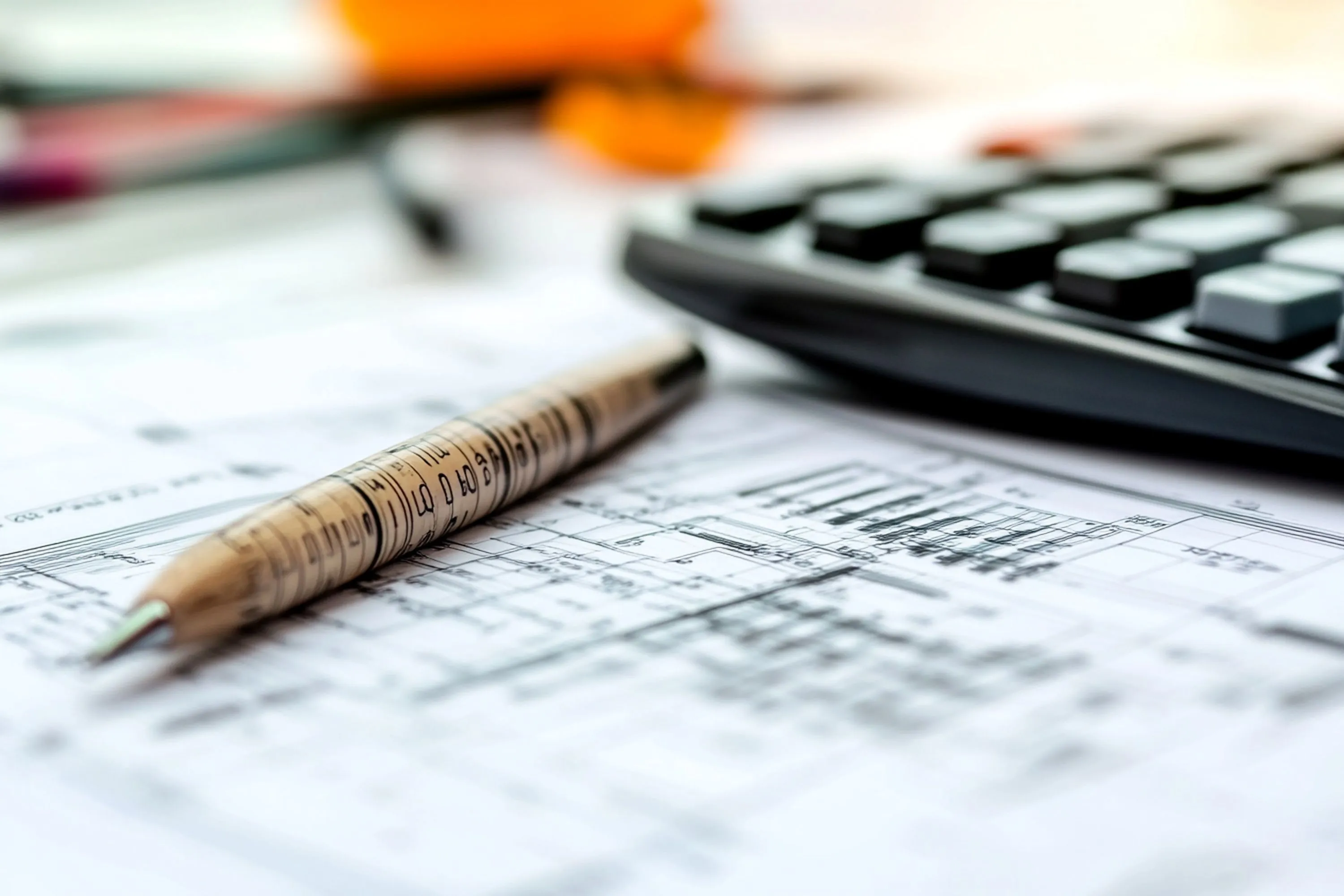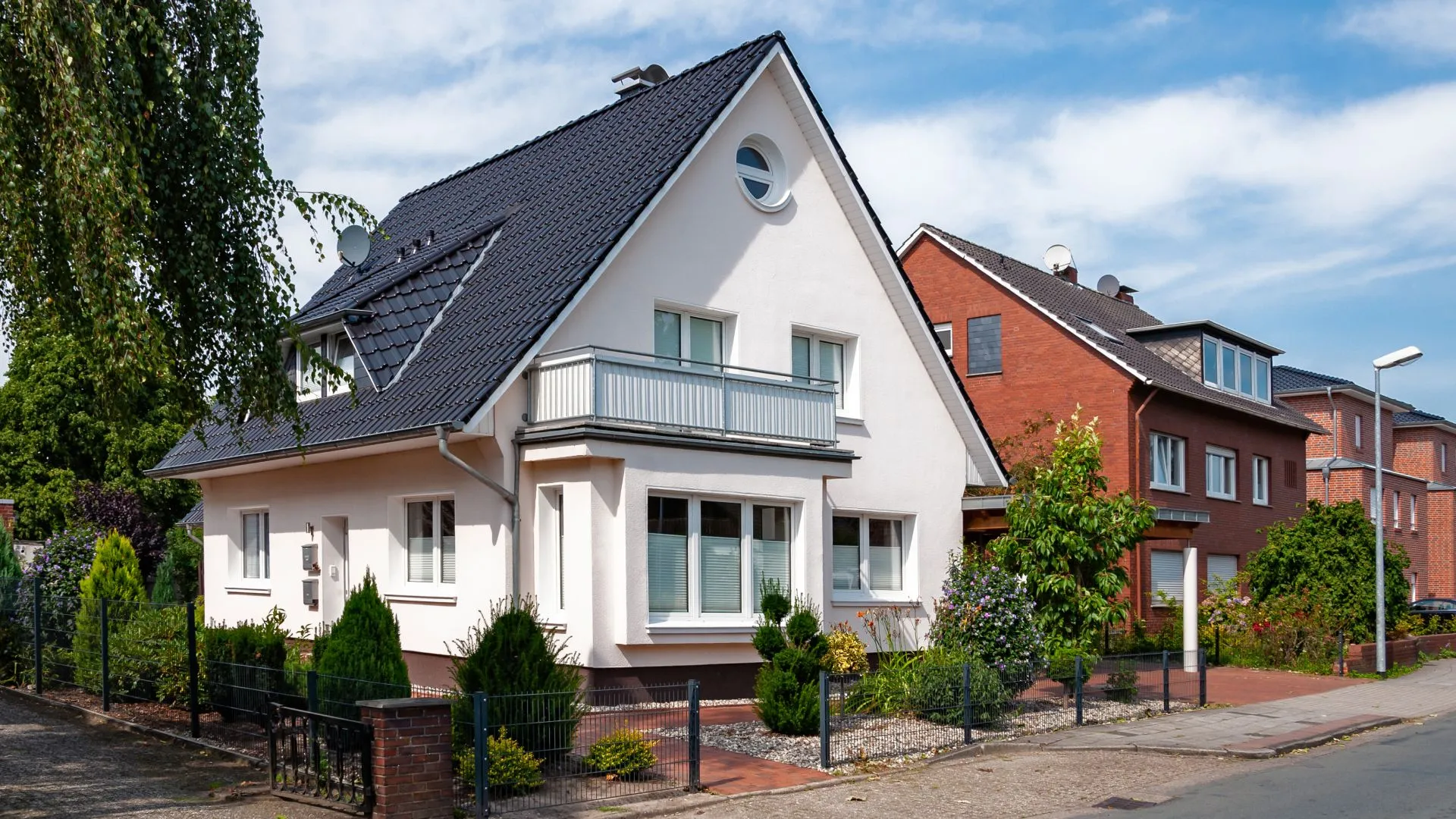Understanding Mortgage Rates in Germany: A Comprehensive Guide for Non-Residents

Author
Ajay DhingraIntroduction
Purchasing property in Germany is an exciting venture, especially given the country's stable real estate market. However, for non-residents looking to finance their German property, understanding the intricacies of mortgage rates in Germany is essential. With a variety of loan options available, it’s crucial to know what to expect when it comes to German home loan rates, how to navigate the mortgage process, and how to secure the best deal.
In this guide, we’ll cover the basics of current German mortgage rates, explore the differences between fixed and variable mortgages, and provide tips on securing the best mortgage rates in Germany. Whether you're a first-time buyer or an investor, this article will help you navigate the world of German mortgage interest rates for non-residents.
Ready to explore your mortgage options in Germany? Let’s get started. If you’d like to browse available properties in Germany, check out our Real Estate Search Engine.
Overview of Mortgage Rates in Germany
The **German mortgage market** has remained stable over the years, making it an attractive option for both local and foreign buyers. As of 2023, **interest rates for mortgages in Germany** are relatively low compared to other European countries, although rates have been edging upwards in recent months due to global inflation and changing economic conditions.
The **current home loan interest rates in Germany** tend to range from about 1.5% to 3%, depending on the loan type, term, and the applicant’s financial standing. Germany’s mortgage system is largely based on long-term fixed-rate loans, although there are still opportunities to explore variable-rate mortgages for those looking for flexibility.
**German real estate financing** is known for its transparency, and the process of applying for a mortgage is straightforward, though non-residents might face slightly higher rates and more stringent requirements. Understanding these **mortgage conditions in Germany** is crucial before making your decision. For detailed mortgage calculations, you can also use our Property Investment Calculator.
Key Factors Influencing Mortgage Rates in Germany
Economic Conditions
Creditworthiness
For residents and non-residents alike, creditworthiness plays a key role in determining **interest rates for mortgages in Germany**. The better your credit score, the more favorable your mortgage terms will be. Non-residents, in particular, may face higher interest rates, as lenders perceive them as higher-risk borrowers compared to German nationals.
Loan-to-Value Ratio (LTV)
The LTV ratio is another important factor influencing **current German mortgage rates**. The higher your deposit or down payment, the lower the interest rate you may be offered. For non-residents, the LTV ratio is typically lower, meaning you may need to put down a larger deposit compared to local buyers.
Mortgage Options for Non-Residents
For non-residents looking to purchase property in Germany, several mortgage options are available. However, obtaining a **real estate mortgage in Germany** can be more complicated than it is for German residents. Generally, foreign buyers will be asked to provide extensive documentation to prove their financial stability.
The good news is that many banks in Germany offer **mortgage rates for non-residents**. These loans tend to have slightly higher interest rates than those offered to residents, but the terms can still be competitive, especially compared to other European countries.
If you’re considering a mortgage as a non-resident, it’s a good idea to work with a mortgage broker who can help you navigate the process. For more insights into financing options, visit our Contact Us page for personalized assistance.
Fixed-Rate vs. Variable-Rate Mortgages
Fixed-Rate Mortgages in Germany
**Fixed-rate mortgages in Germany** are a popular option for many buyers, especially those looking for predictable monthly payments. These mortgages have a stable interest rate that remains the same throughout the loan term, typically ranging from 5 to 30 years. This type of mortgage is ideal if you want to lock in **the best mortgage rates in Germany** and avoid market fluctuations.
Variable-Rate Mortgages in Germany
On the other hand, **variable mortgage rates in Germany** can be an appealing choice for buyers who are willing to accept some degree of risk. These rates fluctuate based on market conditions and the European Central Bank's interest rate decisions. While **variable mortgage rates** may initially be lower than **fixed-rate** loans, they can rise over time, leading to higher payments in the future.
How to Secure the Best Mortgage Rates in Germany
Shopping Around for Lenders
One of the most effective ways to secure **the best mortgage rates in Germany** is to shop around and compare offers from different lenders. Use a **mortgage calculator in Germany** to help estimate monthly payments and find the most competitive rates. Many lenders offer online tools that allow you to check rates quickly.
Working with a Mortgage Broker
If you’re unfamiliar with the German mortgage market or unsure about how to navigate the various options, it can be helpful to work with a mortgage broker. A broker can provide guidance on securing the most favorable rates and help you find lenders willing to work with non-residents.
Foreign Mortgage Rates in Germany
As a non-resident, you may encounter higher **foreign mortgage rates in Germany**. However, it’s important to note that Germany's overall mortgage market remains one of the most competitive in Europe. Depending on your creditworthiness and financial situation, you can still find **German mortgage interest rates for non-residents** that are favorable.
German Mortgage Refinancing Rates
Many homeowners in Germany, including non-residents, choose to refinance their mortgages if interest rates drop. **Germany mortgage refinancing rates** are generally lower than initial loan rates, making refinancing an attractive option for many property owners looking to reduce their monthly payments.
If you're considering refinancing your German mortgage, it’s crucial to compare the current **mortgage refinancing rates in Germany** with your current terms to ensure you're making a financially sound decision.
How to Apply for a Mortgage in Germany
Applying for a mortgage in Germany involves several steps, including providing documentation such as proof of income, tax returns, and your credit history. Non-residents may also need to provide additional paperwork, including proof of their current residence and legal status in their home country.
Ensure that you have all necessary documentation ready to speed up the application process. If you're uncertain about what to include, consider reaching out to a **German mortgage lender** or mortgage broker for guidance.
Challenges for Non-Residents in Securing a Mortgage
Non-residents often face challenges when applying for a mortgage in Germany, such as higher interest rates and stricter lending criteria. However, these challenges can be overcome with careful planning, financial preparation, and by working with experienced professionals.
While these hurdles may seem daunting, understanding the process and being proactive can help non-residents secure a mortgage that suits their needs.
Frequently Asked Questions (FAQs)
1. What are the current mortgage rates in Germany?
**Mortgage rates in Germany** are relatively low compared to other European countries, typically ranging between 1.5% to 3% as of 2023. However, rates may fluctuate due to economic conditions and the European Central Bank's policies.
2. Can non-residents apply for a mortgage in Germany?
Yes, non-residents can apply for a mortgage in Germany. However, they may face stricter requirements and higher **German mortgage interest rates for non-residents** compared to residents. It’s advisable to work with a mortgage broker to navigate the application process.
3. How do fixed-rate and variable-rate mortgages differ in Germany?
**Fixed-rate mortgages in Germany** offer a stable interest rate for the entire term of the loan, which is ideal for those looking for predictable monthly payments. In contrast, **variable mortgage rates in Germany** can fluctuate, which may result in lower initial rates but potential increases in payments over time.
4. What factors influence mortgage rates in Germany?
The key factors influencing **interest rates for mortgages in Germany** include economic conditions, inflation, the European Central Bank's policies, and the applicant’s financial stability. Non-residents may also experience slightly higher rates due to perceived lending risks.
5. How can I find the best mortgage rates in Germany?
To find the best **mortgage rates in Germany**, it's important to compare offers from multiple lenders, use **mortgage calculators in Germany**, and consider working with a mortgage broker who can help identify the most competitive rates for your situation.
6. Are there specific mortgage options for foreigners in Germany?
Yes, there are mortgage options for foreigners. Many **mortgage lenders in Germany** offer loans to non-residents, although the terms may differ from those available to German citizens. Non-residents may need to provide additional documentation and may face higher interest rates.
7. Can I refinance my German mortgage as a non-resident?
Yes, non-residents can refinance their German mortgages, and **German mortgage refinancing rates** are often lower than initial rates, providing an opportunity to reduce monthly payments or adjust the loan term. Be sure to compare refinancing options from different lenders.
8. What are the typical down payment requirements for non-residents?
Non-residents typically need to provide a larger down payment than local buyers. The **Loan-to-Value (LTV) ratio** is often lower for non-residents, meaning you may need to put down 20% or more of the property's value to secure a mortgage.
9. What documents do non-residents need to provide when applying for a mortgage in Germany?
Non-residents will need to provide proof of income, tax returns, credit history, and other documentation to prove financial stability. Additional documents like proof of residency and legal status may also be required by the lender.
10. How do I apply for a mortgage in Germany as a non-resident?
Applying for a mortgage in Germany involves selecting a lender, submitting required documents, and undergoing a credit assessment. It’s often beneficial to work with a mortgage broker who specializes in non-resident applications to simplify the process.
Conclusion
Mortgage rates in Germany are competitive, even for non-residents. By understanding the different types of mortgages available, comparing rates, and working with professionals, you can secure the financing needed to purchase property in one of Europe’s most stable and attractive real estate markets. If you're ready to get started, explore our Real Estate Search Engine to find properties, or visit our Contact Us page for personalized advice.



